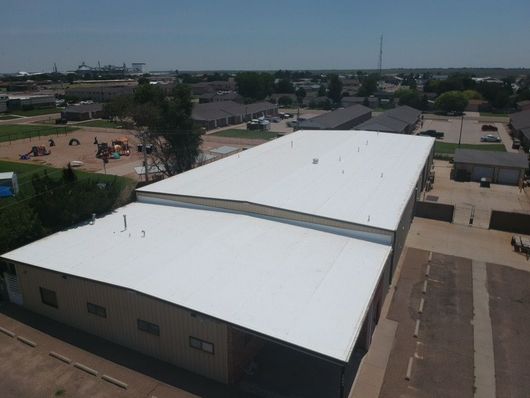Flat roofs have gained popularity in recent years for commercial properties due to their numerous advantages, such as cost savings, low-maintenance needs, and versatility. This article highlights why flat roofs are a smart investment for your commercial building, offering long-term savings and functionality.
The Benefits of Flat Roofs for Your Commercial Property
One of the biggest advantages of flat roofs for commercial buildings is their versatility. They are quicker to install than traditional pitched roofs, which reduces labor costs and installation time. This makes them a more efficient choice for commercial builders.
Another major benefit of flat roofs is their ability to maximize available space. The flat surface can be utilized for purposes like placing HVAC systems, solar panels, or even developing rooftop gardens. This is especially valuable for commercial buildings in crowded urban environments.
Top Materials for Flat Roofs: EPDM, TPO, and PVC
There are several excellent materials available for flat roofing, each with distinct benefits. Below are the most commonly used options for commercial flat roofs:
EPDM (Ethylene Propylene Diene Monomer)
EPDM is a synthetic rubber material that is known for its durability and weather resistance. It’s particularly effective in extreme weather conditions, making it a great option for flat roofs in both hot and cold climates. EPDM is also easy to install and maintain, providing long-term protection against leaks.

TPO: Energy Efficiency and UV Resistance
TPO (Thermoplastic Olefin) is a highly reflective material that helps improve energy efficiency by minimizing heat absorption. It is resistant to UV rays and ozone, which makes it a great option for buildings in sunny areas. TPO is also known for its puncture resistance and ability to withstand harsh weather conditions.
PVC Roofing: Durable and Resistant
PVC is a strong, durable material that’s resistant to water, fire, and chemicals. It’s known for its longevity and is often used in high-traffic areas due to its superior resistance to wear and tear. PVC is a great option for flat roofs that require extra protection against the elements and heavy use.
How to Maintain Your Flat Roof for Longevity
While flat roofs are durable, they still require regular maintenance to ensure their longevity. Here are a few maintenance tips to keep your commercial flat roof in top condition:
- Inspect your roof regularly for debris, such as leaves or branches, that can block drainage systems.
- Ensure that gutters and downspouts are clean and free from blockages to prevent water buildup.
- Schedule annual roof inspections with a professional roofing contractor to check for signs of wear and tear.
- Prompt repairs are essential, particularly if cracks or punctures in the roofing material are found.
The Long-Term Cost Benefits of Flat Roofs
Flat roofs provide excellent value over time. Their lower initial installation costs and easier maintenance can save you money in the long run. The simplicity of inspections and repairs helps reduce ongoing expenses.
The flat roof space can be used for a range of purposes like installing solar panels or additional units, which can result in long-term energy savings. In many instances, flat roofs also help reduce heating and cooling costs by improving insulation.
Conclusion: Why Flat Roofs Are the Right Choice for Your Business
Flat roofs provide excellent value for commercial properties by offering benefits like cost savings, low maintenance, and versatility. By selecting the appropriate roofing material and ensuring proper maintenance, you can extend the life of your flat roof and ensure lasting value for your business.
Want to know more about flat roofing? Get in touch with us for a free consultation, and we’ll guide you toward the best flat roofing options for your business.
#FlatRoofing #CommercialRoofing #RoofInstallation #EPDM #TPO #PVC #RoofMaintenance #EnergyEfficiency #BusinessRoofing